 IBCLC Detailed Content Outline: Pathology Focused CERPs - Section III
IBCLC Detailed Content Outline: Pathology Focused CERPs - Section III
Access CERPs on Pathology for the IBCLC Detailed Content Outline recertification requirements. Enjoy convenient on-demand viewing of the latest Pathology focused IBCLC CERPs at your own pace.
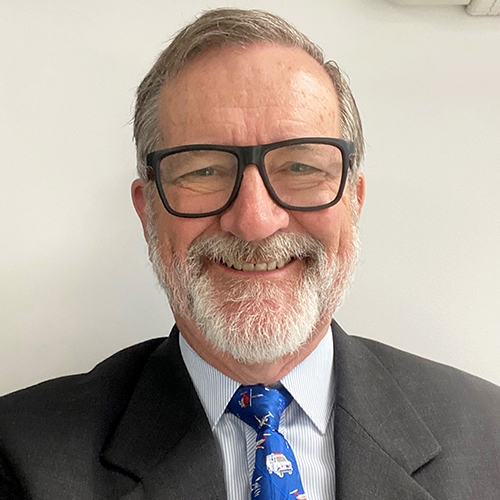

Dr. Andrew Berry, AM MB BS FRACP, is a Neonatal and Paediatric Retrieval Specialist. He has vast experience in neonatal and paediatric critical care transport since 1977. This includes being the head of Neonatal Intensive Care, and Director of Newborn Transport Service, both at Royal Alexandra Hospital for Children in Sydney, Australia.He is currently State Director at NETS, the Newborn and Paediatric Emergency Transport Service of New South Wales, Australia.
Dr. Berry is a fixed wing and rotary wing pilot. In 1989 he co-founded Child Flight Inc., and dedicated helicopter service for children.
His expertise is regularly sought on how to develop and operate emergency transport services and associated advisory programs for perinatal, neonatal and paediatric acute care in Australia, Brunei, New Zealand, Malaysia, Hong Kong, Canada, England, Scotland, Singapore, and the USA.
Air transport is commonly required for acute patient transport; including of sick newborns. Regionalization of tertiary neonatal care often means longer transport distances for patients between local referring hospitals and places of definitive care. The physiology of the newborn and some unique features of disease processes in the newborn present some challenges in safe transport by air. Fixed wing and rotary wing transport modes expose the sick newborn to different stressors according to their own unique variable cabin environments and altitude. An understanding of how newborns react to air transport and how to modify the air transport environment can both contribute to safer, more effective transport of the newborn.
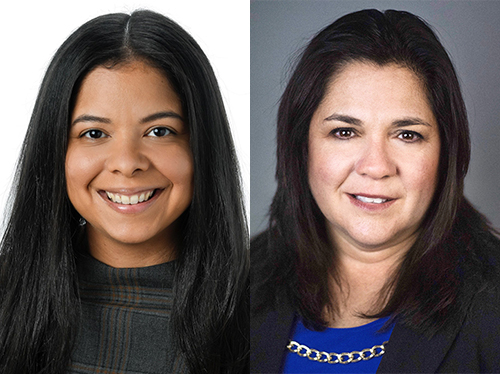
The Untethered Method Integrated: Team Approach to Assessment and Oral Habilitation

Shana Quarrie is an Occupational Therapist for over 12 years and a Certified Lactation Counselor for 5 years and now an IBCLC as of June 2023. She has worked in the pediatric setting for over a decade and in one of the largest Level 4 NICUs in the United States. Shana is one of the Co-Founders of Baby B.L.I.S.S. Feeding Collaborative of Central Florida a private practice formed with two RN, IBCLC’s. They help families prenatally, antepartum and postpartum navigate growth development and feeding journey.
Shana specializes in the medically complex infant such as 23 week preemies, brachial plexus injuries and any neurodevelopmental delays. Shana finds great improvement when combining neurodevelopmental techniques into her practice for optimal feeding and development outcomes. Her mantra is to help families thrive not just in her clinic during their sessions but in their natural environment.
Annette Leary is a registered nurse with over 35 years of experience working in Maternal Child Health (pediatrics, postpartum, home health care and level 2 NICU). She became an IBCLC in 1995. Annette owns a private practice providing home, office, and virtual visits: Orlando Lactation and Wellness Services. She formed a collaboration company Baby B.L.I.S.S. Central Florida Feeding Collaborative, with an occupational therapist and IBCLC. They help families prenatally, antepartum and post partum navigate the growth, development and feeding journey of their children.
Annette began her Upledger Craniosacral therapy training in 2015, taking advanced maternal and pediatric specialty classes. She finds great improvement incorporating craniosacral therapy techniques with lactation consulting. Helping Families Latch onto Parenting has always been Annette's mantra.
Parents are seeking answers to their baby’s feeding difficulties. They verbalize that they are confused by conflicting and contradicting information. They seek opinions from the internet, social media, friends and health care providers that further frustrate them. These families often have to self-navigate this feeding and oral health journey for their baby. They are seeking a functional assessment of the baby’s ability to organize the baby’s suck, swallow and breath pattern to get a differential analysis. Finding providers who can administer the assessment and provide lactation support to the feeding difficulties often means multiple appointments, different offices, and prolonged time. Collaborative practice models place a focus on co-evaluations, co-treatments and care plans to provide the parents with a comprehensive guide of solutions and tools. This allows them to facilitate their baby’s oral motor habilitation and improve their feeding abilities in a timely manner within a single location. These complete assessments, therapeutic modalities and care plans help families feel empowered to make the best decisions on whether to proceed with a frenotomy or not. This program will include 2 case reviews of a family who chose to do the frenotomy and one who did not and how the pre and post frenotomy support care assisted these decisions.

The Vagus Nerve: Branchial Motor / Special Visceral Efferents: The Pharynx, Larynx, Soft Palate and one tiny tongue muscle

Michelle has been a pediatric neurodevelopmental Occupational therapist specializing in precrawling infants for over 26 years. She has specialty certifications and training in lactation, manual therapy, and pre and peri natal psychology. Michelle has specialized in optimal cranial nerve function and oral restrictions, with an emphasis on infant movement, innate biological imperatives and human potential, providing novel curriculums, support and resources for both professionals and parents. She enjoys collaborating and working in teams for babies and families going through the tethered oral tissues release process.
Topic: Breastfeeding and Cranial Nerve Dysfunction – the what, who and why of Cranial Nerve Dysfunction in the newborn to precrawling baby - [View Abstract]
Topic: Compensatory vs Novel Movements: 3 Keys for Babies With Tongue, Lip and Buccal Restrictions - [View Abstract]
Topic: Interoception: Beyond the Homunculus....The Real Sixth Sense and Its Primary Function as Sensory Input to the Autonomic Nervous System - [View Abstract]
Topic: The Vagus Nerve: Branchial Motor / Special Visceral Efferents: The Pharynx, Larynx, Soft Palate and one tiny tongue muscle - [View Abstract]
Topic: TummyTime!™ : A Therapeutic Strategy for Parents and Babies - [View Abstract]
Babies with tongue/oral restrictions and Cranial Nerve Dysfunction (CND) present with clinical indicators of decreased airway patency which interrupt latch and breastfeeding skills, airway development and Autonomic Nervous System regulation. These difficulties are noted clinically by mouth breathing, open mouth posture, stridor, snoring and other noisy breathing, suboptimal breathing patterns, decreased suck/swallow/breathe coordination and poor tongue and jaw posture / movement during activity and rest. Many of us are familiar with the Vagus nerve and the vital role it plays as our body’s sensory/afferent relayer of information to the central nervous system, as well, the Vagus serves as the primary parasympathetic influence on most of our viscera, including our heart, which helps us regulate. However, what we often gloss over is the motor input to the skeletal muscles of the soft palate, pharynx, larynx and tongue which directly impact breathing. This lecture will delve into this fascinating topic and provide clinical applications.

View Details / Enroll
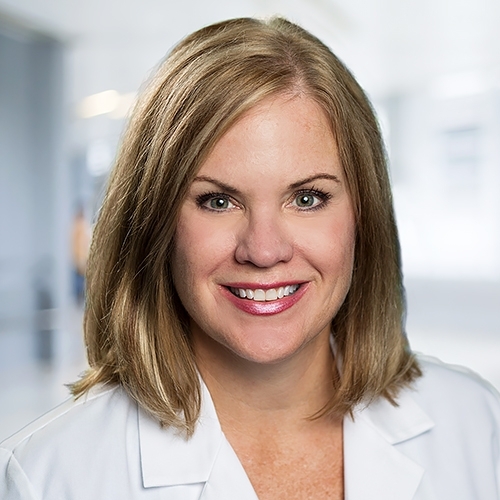
Therapeutic Care of the Opioid-Impacted Mother-Infant Dyad

Dr. Lisa Cleveland is a Pediatric Nurse Practitioner and a tenured Associate Professor at UT Health San Antonio, School of Nursing. Her innovative research with mother-infant dyads impacted by opioid use has contributed to changes in clinical practice and improved outcomes. Her recovery residence, Casa Mia, is a collaborative partnership between the School of Nursing and the nonprofit, Crosspoint, Inc. Casa Mia provides safe and supportive housing for pregnant and parenting women with opioid use disorder where they can recover with their children.
In addition, the findings of Dr. Cleveland’s Maternal Opioid Morbidity Study are providing insight into the contextual factors surrounding maternal opioid use relapse and overdose deaths; the leading cause of maternal mortality in TX and a growing cause nationwide. Dr. Cleveland is now developing and psychometrically analyzing a brief screening instrument to help identify women at-risk for overdose death so they may be referred to life-saving resources. Further, Dr. Cleveland is leading the Texas Targeted Opioid Response to ensure access to Narcan: https://www.morenarcanplease.com/, and opioid overdose identification and reversal education. She is also leading a community paramedicine project to prevent overdose, increase the use of peer recovery services, and improve access to treatment.
Between the 2000 and 2009, the use of opioids, such as heroin or prescription pain relievers, during pregnancy increased fivefold. Prenatal opioid exposure can result in newborn withdrawal symptoms often called Neonatal Abstinence Syndrome (NAS). NAS can include inconsolable crying, sleeplessness, and poor feeding. National rates of NAS have tripled since 2000. Opioid detoxification during pregnancy is not recommended and is linked to preterm labor and fetal distress. Therefore, it is recommended that pregnant women with opioid use disorder be stabilized on medication assisted treatment (MAT). However, these medications may still result in newborn withdrawal.
Treatment of NAS is typically focused on symptom management using soothing techniques and medications. Soothing techniques are non-pharmacological comfort measures and are considered the first line of care for infants with NAS. However, these techniques can be difficult to implement in a busy nursery environment. Medications may alleviate some NAS symptoms but, the use of medication is linked to a longer and more costly hospital stay and prolonged separation of mother and infant. As such, the purpose of this presentation is to explore best practices in the care of the opioid impacted mother-infant dyad with an emphasis on the important role of the biological mother.

View Details / Enroll
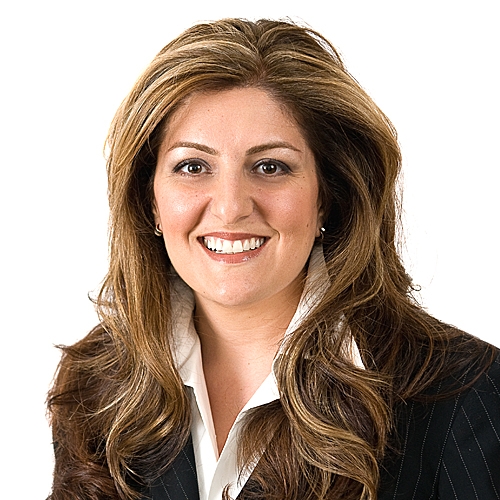
Tongue Tie and Orofacial Myofunctional Development

Dr Marjan Jones, a dental surgeon in Brisbane Australia pioneered a multi-disciplinary approach to the treatment of oral restrictions in Australia. With over 20 years’ experience with dental lasers and extensive knowledge of the comprehensive treatment of oral restrictions, her practice treats patients of all ages, offering a team-based approach to surgery incorporating in-house myofunctional therapy and orthodontics for treatment for children and adults. For infant patients, she collaborates with IBCLCs and cranial therapists for a comprehensive approach toward functional outcomes. She co-founded the Tongue Tie Institute designed to advance the education of health professionals in the treatment of oral restrictions. She now lectures to practitioners from Australia and around the world who have been introduced to a team approach to the management of oral restrictions. She has personal experience with the effect of tongue ties and their effect on herself and family (including breastfeeding challenges) and is determined to help others avoid or overcome their impact. She is a Fellow of the World Clinical Laser Institute, a member of the Academy of Laser Dentistry, the Academy of Breastfeeding Medicine and was the immediate past Chairperson of the Interim Board of the International Consortium of Ankylofrenula Professionals (ICAP). He passion for breastfeeding has resulted in studies toward IBCLC certification.
Michelangelo at work - Tongue Tie and Orofacial Myofunctional Development
Our oral and facial muscles are the master sculptors of our jaws and face. Research and clinical findings show that changing resting oral posture and functional habits of our oral and facial muscles not only influence structure but also affect function. The important functions of the orofacial region include breathing, eating/drinking (including breastfeeding) and speaking.
Breastfeeding is the premier and pivotal determinant of orofacial myofunctional habits. Beyond the many risks of not breastfeeding, malocclusion (poorly positioned jaws and teeth) is a very significant risk.
As such it is important that all health practitioners working with neonates rally to educate, accompany and support breastfeeding dyads toward functional and breastfeeding for as long as possible.
The tongue’s ability to move (particularly to elevate) affects breastfeeding biomechanics. As such, a tethered tongue’s range of motion and span of influence is a deviation from the physiologic norm. Teaching a dyad to compensate or simply manage through sub-optimal breastfeeding and its resulting symptoms can have consequences in functional outcomes later in life. Compensations have consequences that emerge well beyond breastfeeding years.
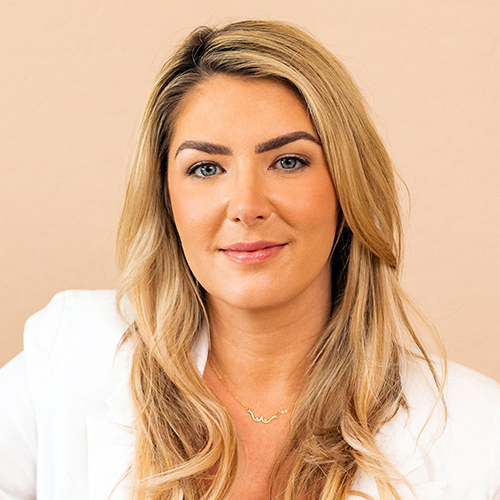

Jacqueline Kincer is the founder of Holistic Lactation where she runs a busy practice, manufacturers herbal supplements for lactation, and supports breastfeeding families worldwide. She's also the host of the podcast Breastfeeding Talk: Milk. Mindset. Motherhood. and creator of the online breastfeeding community, The Nurture Collective. Jacqueline's passion has been to create functional breastfeeding outcomes and expand access to lactation knowledge across the globe.
Topic: Inside the Infant Mouth: Oral Assessment & Function - [View Abstract]
Topic: Tongue Tied Untied: Creating Functional Breastfeeding Outcomes - [View Abstract]
In this presentation, Jacqueline demonstrates how tongue tie affects proper breastfeeding, specifically the mechanics of breastfeeding such as oral grasp, tongue extension, pressure generation, and more. You'll learn how to know which problems are issues that can be corrected with targeted oral exercises, or if bodywork is needed instead. We will also cover the timeline of habilitation in the weeks following frenectomy.
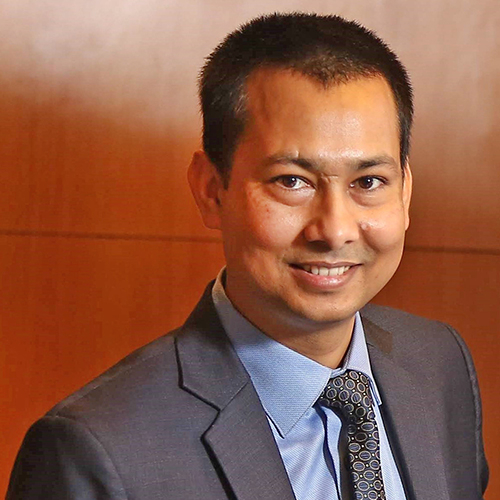
Tongue-Tie and the NICU: A Neonatologist Perspective

Dr. Ankur Bio Update - Dr. Kumar Ankur, MD, DNB is working as an Associate Director & Head of the Department of Neonatology at BLK MAX Super Speciality Hospital Delhi, India. He has been working in the field of neonatology with private and non-goverment organisations for improving neonatal healthcare in the country. He is the national faculty and trainer for FBNC (Facility based neonatal care), Neonatal Resuscitation, Kangarroo Mother Care (KMC) and the national assessor for Neonatology Fellowship accreditation programme of India. He has been invited as an expert speaker, faculty, chairpersons for various national and state level conferences and workshops. He has many publications in national & international journal and authored many chapters, guidelines published by Indian Academy of Pediatrics & National Neonatology of Forum Delhi & India. He is also the co-editor of Handbook of Neonatal Clinical Practices. He is also running training program in neonatal Fellowship for postgraduate students & neonatal nurses. Currently he is also the Secretary of prestigious National Neonatology Forum, Delhi. National Neonatology Forum (NNF) is a strong and large body of more than 8000 neonatologists across India and abroad. NNF has been actively involved in advocacy, policy making, research and ensuring quality health care to newborn for the last 4 decades. He had been past Secretary (2014) & President (2018) of Indian Academy of Pediatrics (IAP), Central Delhi Branch.
Topic: Tongue-Tie and the NICU: A Neonatologist Perspective - [View Abstract]
Tongue Tie is an interesting clinical subject with extreme variability in understanding among lactation consultants, neonatologists, pediatricians, speech therapists, pediatric surgeons, and dental/oral surgeons. There is still no consensus on diagnosis and mode of treatment. However, in recent years there seems to increase reliance on cutting the tie despite the lack of robust evidence. As clinicians, we should always give an unbiased approach towards any neonate's feeding-related problem. Holistic systems like simple bodywork and prolonged skin-to-skin contact, and family involvement can often resolve infant feeding issues. Family-centered care (FCC), based on collaborative participation of the family and a team of health care providers, is found to increase infants' well-being in neonatal critical care units. Our own postgraduate student did her dissertation To Determine the Prevalence of Lingual Frenulum in Infants ≥ 1800 grams of Birth Weight Affecting Breastfeeding (Submitted for Publication). We shall be sharing the Indian data and providing more information about the prevalence of tongue-tie in the NICU, how to distinguish between tongue-tie and other common feeding issues in neonates and the importance of holistic care.
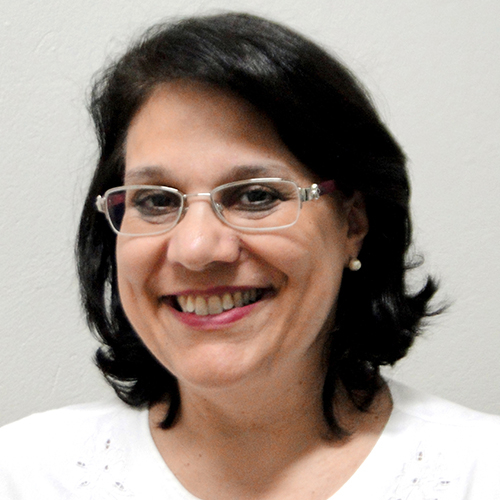
Tongue-tie Assessment Using the Lingual Frenulum Protocol for Infants

SALP expert in Orofacial Myology. PhD in Science USP - University of São Paulo. Chief of lingual frenulum evaluation sector at Santa Therezinha Hospital/ Brazil
Tongue movements are essential for milk extraction during breastfeeding. It is therefore very important that professionals are able to reliably identify anatomical variations in the lingual frenulum that may impact infant feeding. Learn more about how to use the Lingual Frenulum Assessment Protocol for Infants. This tool allows assessment of changes in the lingual frenulum and limitation of tongue movements, which can compromise the functions of sucking, swallowing, chewing, breathing and speaking.
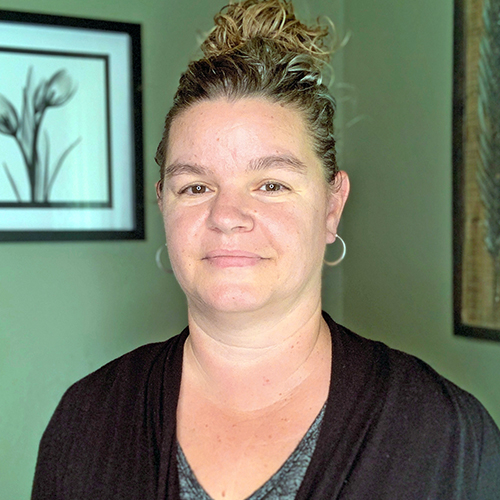
Tongue-Tied and Troubled: A Breastfeeding Journey at Risk

Christine Staricka is a Registered, International Board-Certified Lactation Consultant and trained childbirth educator. As the host of The Lactation Training Lab Podcast, her current role focuses on training and coaching current and aspiring lactation care providers. Christine created and developed The First 100 Hours© concept, an early lactation framework designed to support lactation care providers with the knowledge and mindset they need to help families optimize early lactation. Christine worked as a hospital-based IBCLC for 10 years and has over 20 years experience providing clinical lactation care and support. She provides clinical lactation care to families at Baby Café Bakersfield and serves as its Director. Christine recently completed 6 years of service on the Board of the United States Lactation Consultant Association (USLCA.) She holds a Bachelor's Degree from the University of Phoenix. She has been married for 27 years, lives in California, and is the proud mother of 3 amazing daughters.
Topic: Tongue-Tied and Troubled: A Breastfeeding Journey at Risk - [View Abstract]
Topic: Your Responsibility to the WHO Code: Evaluating Real-World Scenarios for Compliance - [View Abstract]
A suspected or diagnosed tongue-tie can throw a breastfeeding journey into immediate peril, with concerns over the baby's well-being most often discussed and debated. However, without an appropriate and intentional strategy for supporting the mother, the breastfeeding journey risks meeting an untimely, unplanned, and/or unsatisfactory end. The mental and emotional toll such a complex lactation situation can take on parents is wide-ranging in its effects, and it is critical to provide personalized and comprehensive counseling to restore a sense of empowerment and control to the mother as she makes continual decisions on how and whether to proceed with lactation and breastfeeding. Additionally, it is vital that indications of postpartum mood disorders are recognized and addressed as early as they appear. Lactation care providers can benefit from a clear framework for their fundamental responsibility to safeguard both the mother and child in a breastfeeding dyad. In this presentation we will explore ideas and themes that can guide the lactation care provider to ask the right questions at the right times in the specific context of tongue-tie so that they can offer effective counseling and care.


Divya Sinha Parikh MD, IBCLC, FAAP is a board certified pediatrician practicing in Columbus, OH. She received her medical training at The University of Pittsburgh School of Medicine and completed her residency in general pediatrics at Rainbow Babies and Children’s Hospital at Case Western Reserve University. She formerly served on the Baby Friendly Hospital Initiative Committee at MetroHealth Hospital Systems in Cleveland, OH and created a breastfeeding medicine clinical rotation during residency. Her work has been presented in local and national meetings.
The objectives of this lecture are to understand the definition, pathophysiology, and basic management of hyperlactation. Topics discussed with include proposed mechanisms leading to hyperlactation, health effects on mother and baby, and approach to diagnosis and management. Participants will learn key history and physical findings for hyperlactation, behavioral interventions to reduce milk supply, herbal and medical interventions to reduce milk supply, and will learn how to determine which dyads would benefit from medical intervention.
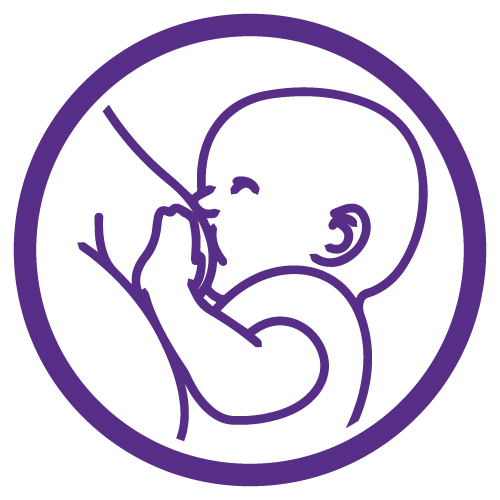
View Details / Enroll











